First Black Female Director Wins ‘Grand Prix’ at Cannes: MATI DIOP
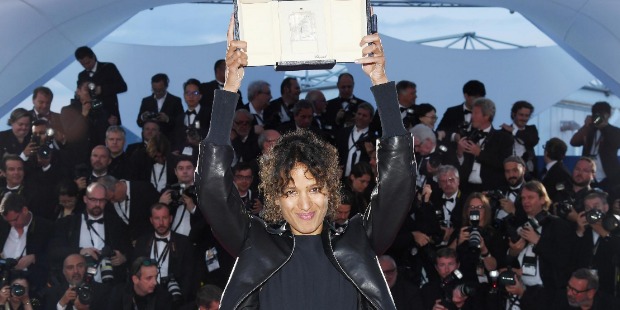
French-Senegalese director Mati Diop became the first-ever black female director to win the Grand Prix – the ‘Grand Prize of the Festival’ for her hard-hitting film ‘Atlantics’ at the 2019 Cannes Film Festival. In the 72-year Cannes Film Festival’s history, Mati Diop became the first-ever black woman, who was one of the nominees for the prestigious Palme d’Or along with 20 other directors.
South Korean director Bong Joon-ho won the Palme d’Or for his film ‘Parasite’ beating the other 20 directors. The second highest prize, the Grand Prix went to Mati Diop for her film ‘Atlantics’. It is fascinating to note that Mati Diop made her debut entry at the 2019 Cannes Film Festival this year to win the coveted prize.
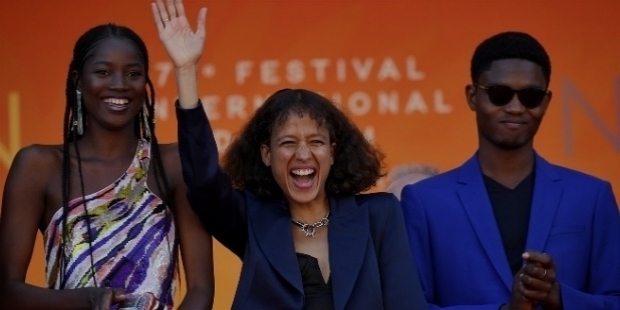
When her name was announced for the Grand Prix, an ecstatic Diop screamed in pure joy with her arms raised complimenting her beautiful smile. Sylvester Stallone presented the Grand Prix to Mati Diop. After the win she enthused, “Growing up watching cinema as a black woman, I really missed black figures and black characters. It is also why I made this film. I needed to see black people on the screen, like huge, everywhere.”
‘Atlantics’ is a magical realistic take on Senegalese migration. The film captures the migrant crisis from the perspective of Senegalese women, who are left behind after many young men flee by sea to Spain. The beautiful director revealed that ‘Atlantics’ is the sequel to her ‘Atlantiques’.
‘ATLANTICS’
Mati Diop's ‘Atlantics’ will go down in the history of World Cinema to win the Grand Prix by the first black woman director ever at the 2019 Cannes Film Festival. Incidentally, she missed the Palme d’Or to win the second highest prize at Cannes. About her magnificent win, Mati Diop disclosed, “I had never felt it before, what I felt that day. It was so unique and special.”
Mati Diop’s ‘Atlantics’ explores the other side of the story of her earlier short film ‘Atlantiques’. The film captures the drama about a suburb of Dakar, which lies along the coast of Atlantic. It is the story of construction workers, who have not been paid for months working on a futuristic-looking tower that is about to be officially opened. Fed up with their plight, one night the workers decide to leave the country by sea in search of a brighter future in Europe.
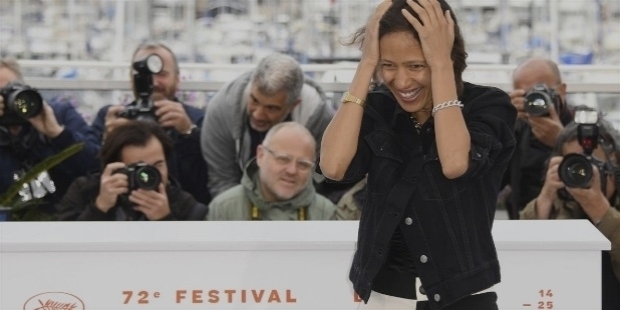
The plot of ‘Atlantics’ revolves around Souleiman, Ada’s lover, who is one of the construction workers planning to leave the country. Interestingly, Ada is espoused to uncaring wealthy Omar. During their wedding, Ada’s friend sees Souleiman nearby during the fire accident. Ada is unaware about Souleiman’s return. All the while, a mysterious illness is spreading in their area. A police investigation ensues.
Ada is accused of harboring her lover Souleiman. The detective investigating the case is seized by a mysterious illness. The film captures mesmerizing visual of storytelling that carries the audience from young lover’s first blush into slightly sinister, navigating jinn spirits and the witching hour before arriving at an achingly sincere climax.
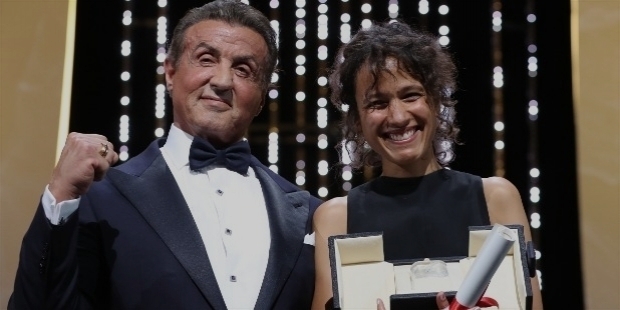
Mati Diop co-wrote the screenplay with Olivier Demangel. The director revealed that she had imagined the ocean as an accomplice, a supernatural force, which was gobbling up the youth. The film captures the trauma of the people left behind, especially women, who are haunted by their young men’s absence.
The Journey of Success:
Mati Diop was born in Paris on the 22nd of June 1982. Father Wasis Diop is a renowned Senegalese musician known for blending traditional Senegalese folk music with modern pop and jazz. Her mother is French. It is astonishing that there is no mention about her mother’s name or profession for surprising reasons.
Mati Diop is filmmaker Djibril Diop Mambety’s niece. Djibril Diop Mambety was a pioneer of African cinema. Interestingly, his 1973 Cannes-winner ‘Touki Bouki’ was also about the subject of migration. Mati Diop grew up in Paris. She has been greatly influenced by her uncle’s cinematography. As she grew up, Mati decided she wanted to become a filmmaker.
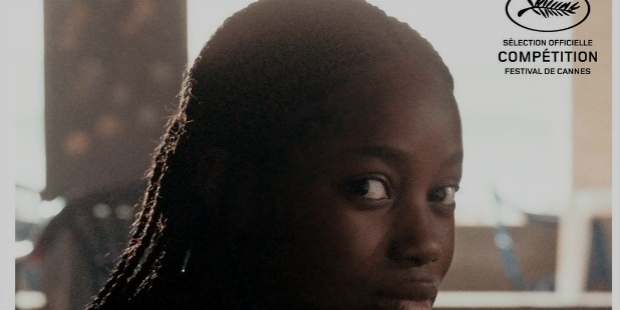
Mati recalled, “As soon as I decided I was going to become a filmmaker, it was immediately connected to my African origins, as if I wanted my cinema to be rooted there. I think, I needed to use cinema to explore this territory.” She compares filmmaking to psychoanalysis. She revealed that a lot of things appear to you that were a bit unconscious. In the year 2004, she made her foray as a filmmaker with the first short film titled ‘Last Night’. Since then, Mati has never looked back.
In the year 2006, she joined the artistic research laboratory of the Palais de Tokyo – the Pavillon. In 2007, she joined Le Fresnoy - Studio National des Arts Contemporains in Tourcoing, France. Mati Diop works as in charge of Sound and Video Designs for the theatre. She has continued to make Short films. Her work has been inspired from independent American filmmakers like John Cassavetes.
Mati Diop made her debut as an actress in the year 2008. She played the lead Josephine in the movie titled ‘35 Rums’ directed by Claire Denis. On the 31st of August 2008, the film was presented out of competition at the Venice Film Festival. ‘35 Rums’ is an intimate story of relationship in the West Indian community living in the suburbs of Paris. It is the story of a widowed father and his daughter.
Mati Diop made her debut presenting ‘A Thousand Suns’ at the 2008 Cannes Film Festival with a documentary project on the film ‘Touki Bouki’. The film was directed by her uncle Djibril Diop Mambety in 1973 and presented at the Cannes Film Festival. In the year 2013, the film was released under the title ‘A Thousand Suns’.
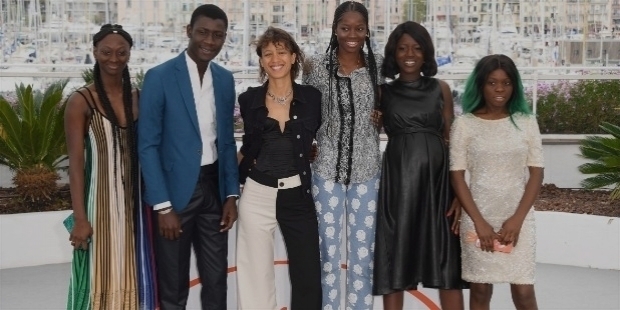
In 2009, Mati Diop acted in Lucrezia Lippi’s short film titled ‘The Bodyguard’. A year later, she played the character of Amy in Sébastien Betbeder’s ‘Yoshido’. She also acted in Thierry de Peretti’s film ‘Sleepwalkers’. In the year 2010, she directed the short film titled ‘Atlantiques’. The film went onto win the ‘Tiger’ for the ‘Best Short Film’ at the 2010 Rotterdam Film Festival.
Mati recalled, “While making ‘Atlantiques’, mass migration was very big and something tragic in Senegal. I was coming from France to make a return to my origins and I would meet people going the other way. I was not chosen, but taken by a history that was much, much bigger than mine.”
It is interesting to note that Mati Diop is comfortable in front and behind the camera with equal ease. One moment she transforms into an actress, the other she is the boss as the director of the unit. She has balanced the two fields with great aplomb.
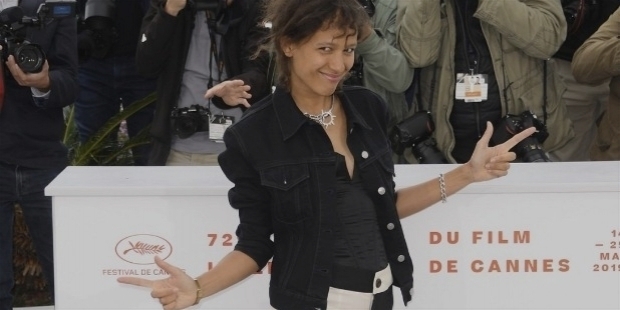
In the year 2011, Mati Diop acted in a short film titled ‘Bye Bye’ and a TV movie ‘Another World’. In the same year, she directed the short film titled ‘Snow Canon’. In 2012, she played the character named Victoria in Antonio Campos’s film ‘Simon Killer’. She also directed the film ‘Big in Vietnam’. In the year 2013, she directed ‘One Thousand Suns’. A year later, she acted in Benjamin Crotty’s film titled ‘Fort Buchanan’. Mati played the character Justine in the film.
In the past 14 years, Mati Diop honed her creative talent to achieve perfection in the art of filmmaking. She is a great talent as an actress-writer-director. In the year 2018, she made her first feature film ‘Atlantique’ / ‘Atlantics’. As per Mati Diop, the film is the sequel to her short film ‘Atlantiques’. The director disclosed that her film is a deeply personal project, but does not reflect her own experiences. The film is more a self-discovery.
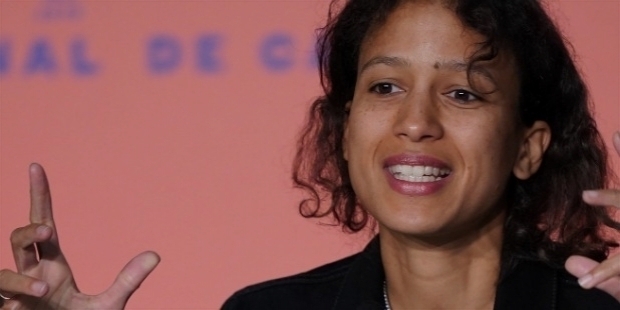
Mati Diop’s film ‘Atlantics’ was selected at the 2019 Cannes Film Festival and was one of the hot contenders for the Palme d’Or. The other 20 films, which were selected as the contenders for Palme d’Or includes Abdellatif Kechiche’s sexual opus ‘Mektoub, My Love: Intermezzo’, Jim Jarmusch’s deadpan zombie romp ‘The Dead Don’t Die’, French director Arnaud Desplechin’s police procedural ‘Oh, Mercy!’, Chinese director Diao Yinan’s stylish noir ‘Wild Goose Lake’.
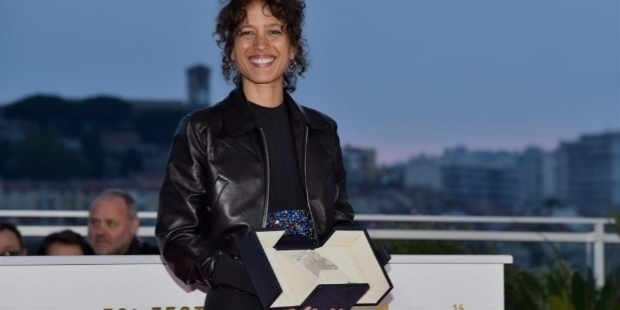
Multiple Palme d’Or winners Dardenne brothers’ social thriller ‘Young Ahmed’, 79-year Italian director Marco Bellochio’s period drama ‘The Traitor’, Austrian director Jessica Hausner’s slow-burn sci-fi thriller ‘Little Joe’, Palestinian director Elia Suleiman’s latest slapstick ‘It Must be Heaven’, Justine Triet’s erotic thriller and black comedy ‘Sibyl’, Quebecois director Xavier Dolan’s ‘Mattias and Maxime’.
Romanian director Corneliu Porumboiu’s enjoyable riff on the heist ‘The Whistlers’, American director Ira Sachs’s ‘Frankie’, multiple Palme d’Or winning British director Ken Loach’s working-class drama ‘Sorry We Missed You’, Brazilian critic-turned-filmmaker Kleber Mendonça Filho’s ‘Bacurau’, Quentin Tarantino’s ‘Once Upon a Time in Hollywood’, 2011 Palme d’Or winner Terrence Malick’s World War II drama ‘A Hidden Life’, Ladj Ly’s directorial debut ‘Les Misérables’.
Spanish auteur Pedro Almódovar’s most personal film ‘Pain and Glory’, Bong Joon-ho’s ‘Parasite’ and French director Céline Sciamma’s vivid period drama ‘Portrait of a Lady on Fire’ had the critics and jury members on toe before announcing the ultimate winner.









